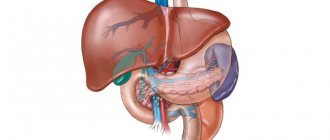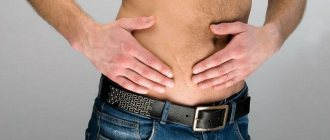There is probably no person in Russia who has not heard the expression “shit doesn’t sink in water.” And many people have wondered why poop doesn’t sink? And is this really true? Do they really not drown or do they drown? Let's rephrase the saying about gold and say this - not everything is shit that doesn't sink. Some poops sink immediately. In fact, the topic is quite serious and we recommend that you familiarize yourself with it. In this article we will answer what affects the buoyancy of crap and why it sinks or does not sink.
Why doesn't shit wash off?
There are several reasons why shit simply refuses to wash off and continues to float again and again, an eyesore. Each of them has completely different origins.
- Defective toilet cistern. This is one of the reasons why flushing poop becomes a problem. The drain mechanism needs to be checked. It happens that something shifts there, and the water does not flow at full capacity and not quite at the right angle. Because of this, the suction power of the siphon decreases. Here you will have to spend a little time as a plumber or call a specialist to your home. Below we will still give advice on what to do if you are too lazy to do something or simply do not have the money at the moment to repair the holy place. Anything can happen, but the shit needs to be washed off - we’ll get out of it.
- The second reason is directly in you, or rather in the turd that you gave birth to. It has a greasy consistency or is too porous, which helps it stay afloat. In the article about that, you can find out in more detail why poop floats well on water and what degrees of buoyancy poop has.
- There is another reason. But the problem lies not in the fact that it is not possible to flush the poop in the toilet, but in the fact that it becomes clogged, not allowing it to pass. This happens when you put in too much toilet paper. Or they really piled up too big a pile, which cannot be washed off the first time. Usually, on the second try, everything falls into place and the feces are safely sent to visit the Ninja Turtles.
What makes stool float?
Increased intestinal gas that results in floating bowel movements is more likely caused by colon bacteria. Some air that may be swallowed while eating, drinking, or breathing can also reach the intestines, as can the gas in carbonated drinks. The process of chemical digestion that produces gas as a by-product, and even the diffusion of gas from the intestines can also contribute to the formation of intestinal gas. However, disruption of the gut bacteria (normal intestinal flora) is more likely to contribute to floating stools.
There are a number of reasons why colon bacteria may increase or why bacteria may produce more gas. Typically, the population of these “good gut bacteria” (normal gut flora) is controlled by a variety of factors. But if the bacterial population increases or the food is not completely absorbed, the bacterial population and food source increase accordingly. As a result, more gas is produced.
Some foods are known to increase gas formation in the intestines. These foods include apples, beans, broccoli, cabbage, and a variety of other gassy foods, especially those high in fiber. However, not every person will experience a significant increase in intestinal gas, resulting in floating stools.
Method 2 of 4 Assess the color of the stool
Look closely at it, sniff it, study the contents - and draw useful conclusions. So I work in your provincial town as a sewer man... But I came to tell you that yesterday I began to notice that you no longer need my help... Each column contains two numbers: the number of views and the number of visitors.
The article states that it’s normal to be a “sinker.” In my experience, it’s the other way around: if I switch to an unhealthy diet, I become a “sinker,” but usually I become a “floater.” Vegetarians would you consider the "ideal" stool (that is, one uncontaminated by the consumption of animal parts) to be a Floater. Many vegetarians have spent their entire lives searching to produce perfection - when in fact no special diet can reliably produce Floats.
The act of defecation
Each organism is characterized by an individual frequency of bowel movements. Normally, this is from three times a day to three bowel movements a week. Ideally - once a day. Many factors affect our intestinal motility, and this should not be a cause for concern. Travel, nervous tension, diet, taking certain medications, illness, surgery, childbirth, physical activity, sleep, hormonal changes - all this can be reflected in our stool.
It is worth paying attention to how the act of defecation occurs. If excessive efforts are made, this indicates certain problems in the body.
Diarrhea is fast stool
Digestion of food takes from 24 to 72 hours. During this time, the food you eat passes through the esophagus into the stomach, then into the small intestine, colon and out through the anus.
Diarrhea or diarrhea is the result of stool passing too quickly through the large intestine, where most of the water is absorbed. Loose stools can be caused by many factors, including stomach viruses and food poisoning. It can also result from food allergies and intolerances, such as lactose intolerance.
Why doesn't stool sink when washed off?
The Americans conducted a study and found that feces sink or crumble about 5 hours after entering the water. The buoyancy of feces should not be of particular concern, especially if there are no other symptoms of digestive problems. Feces float rather than sink due to its porous structure and the presence of a certain amount of gases released by the bacterial flora.
Buoyancy is most often affected by the food consumed, however, the deviation of this indicator from the norm can suggest some disturbances in the functioning of the gastrointestinal tract. For example, when stool does not sink when washed off and floats on the surface like foam, this indicates that its density is too low, which is due to the high air content in the stool.
The reason lies either in the consumption of foods that cause increased gas formation in the intestines, or in the increased proliferation of bacteria. The presence of an intestinal infection will additionally be indicated by loose or liquid consistency of stool, a strong odor, inclusions of mucus, traces of blood, and discoloration. Feces will be light after eating a large amount of plant foods, which contain fiber that is loose in structure. Too fatty feces do not flush down the toilet and float to the surface. Such stool may be a sign of impaired fat absorption due to liver disease. However, for a breastfed baby, such stool is the norm, especially in the first months of the baby’s life. Unlike an adult, a baby's peristalsis is accelerated, and fats from mother's milk are poorly absorbed and are excreted along with feces.
If the feces sink in water, this may indicate an increased consumption of animal proteins, the metabolism of which increases the content of toxins in the body. Heavy, dense stool with virtually no air pockets is released when the level of bad cholesterol in the body exceeds more than 1.5 times the normal level. In relation to a child, the more dangerous situation is when the feces drown. In this case, you must immediately consult a doctor and take a coprogram.
Don't all poops sink?
If you want to use your poop as a rescue float, you won't get very far. Any poop will eventually sink. One shit floats for a while and eventually sinks, while the other sinks immediately after defecating. The behavior of your poop in water can tell a lot about your health.
Interesting fact!
American scientists conducted studies in which they determined that freshly shit floats for 5 hours! After this time, the pores are filled with water, and it sinks or dissolves in water.
There are three types of poop buoyancy:
- Turd floats on the surface of the water.
- Floats slightly submerged.
- Drowns immediately after defecation.
Advice!
After you poop, watch your poop to see if it sinks or not. Since their buoyancy can indicate the state of your health.
Digested food from the stomach enters the intestines in liquid form. There the formation of feces occurs. The intestinal walls absorb fluids from digested food. Also, the intestines contain a huge number of bacteria, which, when interacting with feces, produce gases. Thus, our poop is enriched with gases and has a kind of porous structure. This actually affects the buoyancy of the poop. In particular, this affects the smell of feces. The output is a mass consisting of solid, liquid and gaseous elements.
Causes of light stool
The presence of feces on the surface means that they contain a lot of fatty elements.
This aspect depends on improper absorption and subsequent breakdown of fats entering the body with food. The cause is often pathological processes occurring in the digestive system and increased peristalsis. However, the presence of too dense and light stools that cannot be dispersed for a long time is not always a consequence of the disease. They often form as a result of long-term use of medications, in particular antibiotics. If the color of feces changes at the same time, this factor should not be ignored.
Foods that affect stool
Hard, heavy stool with virtually no air pockets can signal that an excessive amount of dangerous toxins has accumulated in the body. Another reason for this change is an increase in cholesterol levels by 1.5 times or more relative to normal.
As for toxins, they come with food or are formed due to excessive consumption of proteins. Products at risk include:
- meat and dairy products;
- eggs;
- bird;
- seafood of dubious origin.
Before using them, careful heat treatment must be carried out. When purchasing, you should also carefully check these products for correctness and shelf life.
If during defecation feces are released, which have a loose structure and do not fall under the water, they are a consequence of eating an unlimited amount of plant foods. Such products contain a lot of fiber, which makes feces fluffy and can color them in unusual shades.
Pathological causes
Why is stool difficult to flush down the toilet? If the cause is the presence of fatty particles in large quantities, this factor should not be ignored, because there is a high probability of pathological changes in the liver.
If the stools are light in color and have a strong and unpleasant odor, the cause may be an intestinal infection. The stool may also contain traces of blood, mucus, and inclusions of an unnatural color.
If a person’s feces are not flushed down the toilet the first time, and the general condition is disturbed, qualified specialist help and treatment will be needed. The first symptoms of a metabolic disorder of fats appear precisely in the unusual state of excrement. More characteristic signs are found in the later stages of the pathology.
Fatty stool that floats to the surface may occur in a small breastfed baby. For babies, this state of affairs is the norm in the first few months of life. The bottom line is the insufficient absorption of fats found in breast milk and accelerated peristalsis.
Loose stools. What to do
If you have soft, too frequent, loose stools for a long time, this indicates a malfunction of the gastrointestinal tract. To get rid of diarrhea, you need to understand the cause of its occurrence. Try to strengthen your stool with foods that strengthen it. These are unripe bananas, applesauce, rice, fatty meat, broth, baked goods, mashed potatoes.
An excellent home remedy for diarrhea is black peppercorns. Depending on your body weight, take 10-15 pieces and swallow with water.
When diarrhea continues for more than three days or there is blood in it, you need to consult a doctor and have a detailed stool test done.
Shit floats on the surface of the water
If your excrement floats on the surface of the water like foam, this may indicate a high fat content. In turn, this may signal problems with absorption and breakdown of fats, which occurs with liver disease, intestinal disease, and increased peristalsis. Of course, such feces may not always signal disease. This may be a consequence of taking medications, such as antibiotics. But if you notice this and it continues for a significant period of time, you should consult a doctor. You should not self-medicate. The first signs appear in the stool, but other signs of the disease begin to appear with a progressive disease that will be difficult to treat.
Excessive buoyancy of feces can occur when it is excessively enriched with gases. This occurs as a result of increased gas production by intestinal bacteria. This is due both to the characteristics of the food taken and may indicate the presence of intestinal infections.
On a note!
The buoyancy of poop is also affected by the food you eat. Foods that cause increased gas formation will lead to more buoyant stool.
Feces in children
Many mothers are interested in what baby's stool should be like.
It is worth paying special attention to this factor, since gastrointestinal diseases are especially severe at an early age. At the first suspicion, you should contact your pediatrician immediately
In the first days after birth, meconium (dark color) comes out of the body. During the first three days, it begins to mix in. On the 4-5th day, feces completely replace meconium. During breastfeeding, golden-yellow feces are a sign of the presence of bilirubin, paste-like, homogeneous, and acidic. At the 4th month, bilirubin is gradually replaced by stercobilin.
The chair must sink
If feces remain in an aqueous environment for a long time, the pores are gradually forced out of its volume. Thus, from objective data one can see that extreme buoyancy was attributed to shit purely from social motivations and allegorical definitions.
Important information is conveyed by the state of our feces in the toilet. It’s worse when the feces sink abruptly, sink to the bottom like a stone, which means the body is heavily polluted, and the intestinal bacteria either don’t work at all or work poorly, they cannot saturate the feces with gases
So periodically pay attention to the condition of your feces in the toilet. By the way, in England I was not the only one who suffered from the fact that the feces refused to be washed off
ALWAYS floated in the toilet. The color, shape, and smell of poop can tell you what's going on in your body. Possibly caused by some kind of infection, in which case diarrhea is the body's way of getting rid of pathogens. BrownIt's okay. Stool is usually brown in color due to bile produced in the liver.
YellowFat, foul-smelling, or bright yellow stool indicates excess fat. This may be due to a fat absorption disorder such as celiac disease. If for the first time you see something wrong in your stool, not the same as usual, do not rush to panic. We all go to the toilet, and although this isn't a dinner party topic, sometimes it's worth taking a look at what we usually try to flush down the toilet as quickly as possible.
As you may have already noticed, the color of your stool can vary depending on the food you eat and other factors. Do you go to the toilet at the same time every morning, or can you go a few days without going much?
Flatulence is embarrassing, but it is the result of harmless bacteria breaking down food in the colon and is a completely healthy process.
Pay attention to the consistency of the stool. Bowel stools should be homogeneous, dense and slightly loose
What should we, amateurs, amateur producers and feces researchers, know about this very product that seems close to us and understandable, but sometimes mysterious? The composition of feces generally depends on the nature of nutrition and the function of the digestive tract. Feces are formed in the large intestine and consist of food debris, mainly plant fiber.
Causes of floating stool
These are just some of the most common causes of bowel movements. Many of these conditions do not require treatment as dietary measures and lifestyle choices will suffice. Read more about the causes of gas in other conditions in which floating stools may occur.
Intestinal infections
When these pathogenic (disease-causing) bacteria thrive in the intestines and multiply rapidly, they can also disrupt normal intestinal flora. This allows some of these "good" gut bacteria to grow rapidly, causing them to overgrow. Sometimes antibiotics used to treat bacterial infections can also disrupt normal intestinal flora. This ultimately leads to an increase in bacteria, which in turn leads to an increase in intestinal gas.
Food intolerance
Lactose intolerance is the most common digestive problem. People with lactose intolerance are deficient in the enzyme that breaks down the milk sugar lactose. As a result, lactose remains in the intestines and allows bacteria to feed on it, resulting in more gas being produced. Digestive problems associated with other foods can also lead to a similar problem.
Malabsorption syndromes
There are a number of different causes of malabsorption. Under these conditions, the digestive tract can digest food, but it cannot be absorbed into the body. Inflammation of the gut is one cause, and it can be associated with a variety of conditions, ranging from infections and food sensitivities to alcoholism.
Pancreatic diseases
Floating stool may indicate pancreatic disease
The pancreas produces various types of digestive enzymes that pass into the duodenum of the small intestine. However, with diseases of the pancreas, there may not be enough digestive enzymes to break down food. Nutrients accumulate in the lower intestine and more bacteria can multiply and produce gas.
Gallbladder diseases
Bile, secreted by the gallbladder, emulsifies fat so that fat-digesting enzymes can break it down and absorb it. When the gallbladder is damaged or has been surgically removed, fat can move into the lower intestine. It is then consumed by bacteria. The stool may be oily or greasy (steatorrhea), but the release of gas by bacteria causes the feces to float, not so much fat.
Short intestine
The length of the human intestine ensures the absorption of sufficient nutrients from food. This occurs as food moves through the intestines. However, if the intestines are shorter than normal, adequate digestion and absorption of nutrients may not occur. Bacteria may produce more gas. This can happen if part of the intestine is surgically removed, missing, or damaged since birth.
Other reasons
- Celiac disease
- Pregnancy
- Sudden weight loss
- Cystic fibrosis
- Changes in diet.
What kind of feces are there? Bristol scale stool shape
type 1 type 2 type 3 type 4 type 5 type 6 type 7
Properly formed normal feces ensure that the process of digesting food and absorbing nutrients, as well as eliminating toxins and other waste, occurs without any disruption. The Bristol Stool Shape Scale gives an idea of what a healthy person's stool should look like.
Type 1:
Watery stools without particles
Type 2:
Fuzzy "fluffy" stool with ragged edges
Type 3:
Soft drops with clear, jagged edges (comes out easily)
Type 4:
Smooth and soft sausage
Type 5:
Like a sausage, but with cracks on the surface
Type 6:
Sausage shape, but lumpy and lumpy
Type 7:
Individual small lumps, small balls that come out with difficulty
The best option is Type 4. Ideal sausage-shaped poop comes out easily and smells more like overripe fruit than something terrible. The feces should come out easily and fall gently into the water.
- If feces are poorly washed off the walls of the toilet, it contains undigested fats.
- If the feces do not sink, there is either a lot of gases, or fiber, or undigested fats.
- If it falls sharply and with a splash, there is a lack of dietary fiber.
Type 5 is better than Type 2 and 3. Diarrhea is difficult to control and its causes are sometimes not easy to eliminate. Diarrhea prevents the body from absorbing essential nutrients.
- Pasty feces may indicate inflammatory processes in the intestines and malabsorption.
- Foamy feces are fermentation processes in the intestines.
- Lumpy stool may indicate insufficient water intake.
What is a chair made of?
Water makes up about 75% of our bowel movements. The rest, which often doesn't smell very pleasant to us, is a mixture of fiber, dead and living bacteria, other cells and mucus. Soluble fiber in foods such as beans and nuts is broken down during digestion and forms a gel-like substance that becomes part of our stool.
On the other hand, foods with insoluble fiber, such as corn, oat bran and carrots, are harder to digest, which explains why they come out almost unchanged.
How many times do they go to the toilet?
The norm for bowel movement is one full trip to the toilet per day, when a person feels not partial, but complete bowel movement. Sometimes there is more frequent bowel movements. Often bowel movements occur 2-3 times a day. This suggests that the person's metabolism is faster or that they have consumed food that has a natural laxative effect. More frequent bowel movements (more than 3 times a day) indicate that you are experiencing diarrhea, which we will discuss below.
There is an opinion that it is normal to have a bowel movement every couple of days, but this is a controversial issue. Emptying your bowels is the body's best way to get rid of toxins, acids and other unnecessary substances that may be building up inside, so ideally this process should happen daily.
What's normal is pretty relative
Do you go to the toilet at the same time every morning, or do you go a few days without going “big”? This is all normal. The main thing is how consistent your routine is. A significant decrease in bowel movements can be caused by dietary changes, such as less fiber. Other factors that affect stool frequency include gastrointestinal disorders, hyperthyroidism, and colon cancer.
Cultural differences also play a role. For example, people living in South Asian countries are much more likely to go to the toilet when they need to go to the toilet than, for example, the British, which is explained by differences in diet. The average person produces about 150 grams of excrement per day, which is about 55 kg per year.
Method 2 of 4 Assess the color of the stool
Look closely at it, sniff it, study the contents - and draw useful conclusions. So I work in your provincial town as a sewer man... But I came to tell you that yesterday I began to notice that you no longer need my help... Each column contains two numbers: the number of views and the number of visitors.
The article states that it’s normal to be a “sinker.” In my experience, it’s the other way around: if I switch to an unhealthy diet, I become a “sinker,” but usually I become a “floater.” Vegetarians would you consider the "ideal" stool (that is, one uncontaminated by the consumption of animal parts) to be a Floater. Many vegetarians have spent their entire lives searching to produce perfection - when in fact no special diet can reliably produce Floats.
The chair must sink
If feces remain in an aqueous environment for a long time, the pores are gradually forced out of its volume. Thus, from objective data one can see that extreme buoyancy was attributed to shit purely from social motivations and allegorical definitions.
Important information is conveyed by the state of our feces in the toilet. It’s worse when the feces sink abruptly, sink to the bottom like a stone, which means the body is heavily polluted, and the intestinal bacteria either don’t work at all or work poorly, they cannot saturate the feces with gases
So periodically pay attention to the condition of your feces in the toilet. By the way, in England I was not the only one who suffered from the fact that the feces refused to be washed off
ALWAYS floated in the toilet. The color, shape, and smell of poop can tell you what's going on in your body. Possibly caused by some kind of infection, in which case diarrhea is the body's way of getting rid of pathogens. BrownIt's okay. Stool is usually brown in color due to bile produced in the liver.
YellowFat, foul-smelling, or bright yellow stool indicates excess fat. This may be due to a fat absorption disorder such as celiac disease. If for the first time you see something wrong in your stool, not the same as usual, do not rush to panic. We all go to the toilet, and although this isn't a dinner party topic, sometimes it's worth taking a look at what we usually try to flush down the toilet as quickly as possible.
As you may have already noticed, the color of your stool can vary depending on the food you eat and other factors. Do you go to the toilet at the same time every morning, or can you go a few days without going much?
Flatulence is embarrassing, but it is the result of harmless bacteria breaking down food in the colon and is a completely healthy process.
Pay attention to the consistency of the stool. Bowel stools should be homogeneous, dense and slightly loose
What should we, amateurs, amateur producers and feces researchers, know about this very product that seems close to us and understandable, but sometimes mysterious? The composition of feces generally depends on the nature of nutrition and the function of the digestive tract. Feces are formed in the large intestine and consist of food debris, mainly plant fiber.
Stool sinks in water when flushed in the toilet: causes of airy stool
Water makes up about 75% of our bowel movements. The rest, which often doesn't smell very pleasant to us, is a mixture of fiber, dead and living bacteria, other cells and mucus. Soluble fiber in foods such as beans and nuts is broken down during digestion and forms a gel-like substance that becomes part of our stool.
On the other hand, foods with insoluble fiber, such as corn, oat bran and carrots, are harder to digest, which explains why they come out almost unchanged.
https://www..com/watch?v=rG-qhekr09E
Water makes up about 75 percent of our bowel movements. The rest - what often doesn't smell very pleasant to us - is a mixture of fiber, dead and living bacteria, other cells and mucus. Soluble fiber in foods such as beans and nuts is broken down during digestion and forms a gel-like substance that becomes part of our stool.
On the other hand, foods with insoluble fiber, such as corn, oat bran and carrots, are harder to digest, which explains why they come out almost unchanged.
Color matters
As you may have already noticed, the color of your stool can change depending on the food you eat and other factors. For example, beets can cause your stool to turn red, while green leafy vegetables can turn your stool green. Also, some medications can cause white or clay-colored stools.
Shape matters too
The ideal chair comes out shaped like a curved log, rather than falling apart. This shape, unlike the pebble shape, is the result of the consumption of fiber, which gives the stool bulk and serves as a kind of gluing agent.
Thin stools may be a sign of bowel cancer, which narrows the opening through which stool passes.
The ideal chair comes out shaped like a curved log, rather than falling apart. This shape, unlike the pebble shape, is the result of the consumption of fiber, which gives the stool bulk and serves as a kind of gluing agent.
Thin stools may be a sign of bowel cancer, which narrows the opening through which stool passes.
What's normal is pretty relative
Do you go to the toilet at the same time every morning, or can you go a few days without going much? This is all normal. The main thing is how consistent your regimen is.
A significant decrease in bowel movements can be caused by dietary changes, such as less fiber.
Other factors that affect stool frequency include gastrointestinal disorders, hyperthyroidism, and colon cancer.
Cultural differences also play a role. For example, people living in South Asian countries are much more likely to go to the toilet when they have a great need than, for example, the British, which is explained by differences in diet. The average person produces about 150 grams of excrement per day, which is an average of 5 tons over a lifetime.
Do you go to the toilet at the same time every morning, or do you go a few days without going “big”? This is all normal. The main thing is how consistent your routine is.
A significant decrease in bowel movements can be caused by dietary changes, such as less fiber.
Other factors that affect stool frequency include gastrointestinal disorders, hyperthyroidism, and colon cancer.
Cultural differences also play a role. For example, people living in South Asian countries are much more likely to go to the toilet when they need to go to the toilet than, for example, the British, which is explained by differences in diet. The average person produces about 150 grams of excrement per day, which is about 55 kg per year.
Diarrhea is fast stool
Digestion of food takes from 24 to 72 hours. During this time, the food you eat passes through the esophagus into the stomach, then into the small intestine, colon and out through the anus.
Diarrhea or diarrhea is the result of stool passing too quickly through the large intestine, where most of the water is absorbed. Loose stools can be caused by many factors, including stomach viruses and food poisoning. It can also result from food allergies and intolerances, such as lactose intolerance.
Passing gas is normal
Flatulence is embarrassing, but it is the result of harmless bacteria breaking down food in the colon, a completely healthy process. Our intestines are filled with bacteria that release gas as a byproduct of digestion. Our body absorbs some of this and releases the rest. It is normal to pass gas 10 to 18 times a day.
Flatulence is embarrassing, but it is the result of harmless bacteria breaking down food in the colon, a completely healthy process. Our intestines are filled with bacteria that produce gas as a byproduct of digestion. Our body absorbs some of this and releases the rest. It is normal to pass gas 10 to 18 times a day.
Your phone may be covered in excrement
Wash your hands well after using the toilet or your stool will end up on other objects. In a recent study, scientists found that one in six phones are covered in fecal matter, which can spread E. coli.
Since we carry our mobile phones with us everywhere, especially where we eat, E. coli transferred to your plate can play a role in the spread of infection.
Wash your hands well after using the toilet or your stool will end up on other objects. In a recent study, scientists found that one in six phones are covered in fecal matter, which can spread E. coli.
https://www..com/watch?v=1Zq4_JHOLuQ
Since we carry our mobile phones with us everywhere, especially where we eat, E. coli transferred to your plate can play a role in the spread of infection.
Source: https://www.kolit.su/blog/pochemu-tonet-vode-prichina/
Loose stools. What to do
If you have soft, too frequent, loose stools for a long time, this indicates a malfunction of the gastrointestinal tract. To get rid of diarrhea, you need to understand the cause of its occurrence. Try to strengthen your stool with foods that strengthen it. These are unripe bananas, applesauce, rice, fatty meat, broth, baked goods, mashed potatoes.
An excellent home remedy for diarrhea is black peppercorns. Depending on your body weight, take 10-15 pieces and swallow with water.
When diarrhea continues for more than three days or there is blood in it, you need to consult a doctor and have a detailed stool test done.
Why does stool float?
Healthy stool (stool or feces) usually sinks.
However, floating stool does not necessarily mean there is a health problem. It is difficult to recognize floating stool on your own - it is a sign of some kind of disease. The presence of other symptoms, such as diarrhea, constipation, abdominal pain, changes in appetite and changes in the consistency, color and even odor of stool, as well as floating stool, are more likely to be associated with a particular disease. The problem is usually related to the digestive system, including the gastrointestinal tract and/or pancreas, gallbladder or liver. Stool analysis can also be useful in identifying abnormalities that are not obvious to the naked eye.
Shit in the toilet
In this case, a dog, a cat, a child, etc. are the supposed source of future wealth in the understanding in which this image is interpreted in dreams. For example, dog feces will indicate that you will get rich with the participation of a friend, cat shit will predetermine the involuntary help of your ill-wisher in this, and child feces will indicate the favorable development of a new business, undertaking, or business project. Your feces should be interpreted as the result of your own efforts to improve your well-being, a hint that you should not expect help from anyone in reality.
The next point of interpretation will be to clarify what to do with the detected feces of the sleeping person. For example, washing away shit in a dream is a hint that you will lose of your own free will what will float into your hands.
Getting dirty with shit, stepping in shit in a dream - all this will indicate a more specific possession of certain benefits. At the same time, an excessive action, such as, for example, drowning in shit, indicates that you will not calculate your strength, exceed your authority, or something else will happen, because of which money will not bring you happiness.
The smell of shit, which you do not see, is a sign of concern that people around you are interfering in your affairs and violating your plans.
Why do you dream about shit - esoteric dream book
Shit in the toilet warns that you will encounter some kind of abomination.
If you step in shit in a dream, you yourself will inadvertently get involved in an unpleasant story. If you were able to get around the feces lying under your feet - be vigilant in reality and avoid trouble
If you were able to get around the feces lying under your feet, be vigilant in reality and avoid trouble.
If you dreamed that you stepped on dog shit, you will find yourself in unpleasant circumstances due to the fault of a friend.
Cleaning up shit - such a dream suggests that you will have to eliminate the consequences of someone else’s illegal or immoral act.
Eating shit - such a dream indicates finding yourself in an extremely disgusting situation, participating in something disgusting that will leave you with the most unpleasant feelings and memories.
Shit, Meneghetti's dream book
Human shit and excrement personify the devaluation of those aspects of life that were important to the subject in real life.
If in a dream you performed some manipulations with your feces (for example, ate feces, washed away feces, swam in shit, etc.) - this reflects the presence of a negative deviation monitor program, as well as the death instinct.
Why poop, dream about feces, Longo's dream book
Seeing a lot of crap in a dream, a large pile of feces, means receiving an inheritance.
Dreaming of dog feces means that your friend will unwittingly spoil some financial matter for you.
A plot in which you see shit gushing out of a toilet in a fountain is a sign of unscheduled repairs.
If an unmarried girl dreams of a pile of shit on her own bed, and she has to clean it up, she will marry a rich man, but very unclean, both physically and morally.
Why do you dream of feces - a modern dream book
If you dreamed about a lot of shit - expect big profits, winnings, inheritance.
Dreaming of cleaning up shit means that receiving all this will be challenged by someone, and other contenders will appear for the possession of the property or income you received. This could be other heirs, tax payments, etc.
If you remove feces and smell it, you feel disgusted in a dream - in reality you will have to give an account of illegally obtained material assets.
Dreaming of dog shit means that you will be bound by debt obligations with one of your friends.
Seeing other people's panties covered in shit in a dream means that you will learn that someone got rich dishonestly or committed fraud. If you are an entrepreneur, this could be your money stolen by a dishonest employee.
If in a dream you are floating in shit, you will live in luxury, but will never find peace of mind, because you will get rich in dishonest and immoral ways.
Why doesn't shit wash off?
There are several reasons why shit simply refuses to wash off and continues to float again and again, an eyesore. Each of them has completely different origins.
- Defective toilet cistern. This is one of the reasons why flushing poop becomes a problem. The drain mechanism needs to be checked. It happens that something shifts there, and the water does not flow at full capacity and not quite at the right angle. Because of this, the suction power of the siphon decreases. Here you will have to spend a little time as a plumber or call a specialist to your home. Below we will still give advice on what to do if you are too lazy to do something or simply do not have the money at the moment to repair the holy place. Anything can happen, but the shit needs to be washed off - we’ll get out of it.
- The second reason is directly in you, or rather in the turd that you gave birth to. It has a greasy consistency or is too porous, which helps it stay afloat. In the article about that, you can find out in more detail why poop floats well on water and what degrees of buoyancy poop has.
- There is another reason. But the problem lies not in the fact that it is not possible to flush the poop in the toilet, but in the fact that it becomes clogged, not allowing it to pass. This happens when you put in too much toilet paper. Or they really piled up too big a pile, which cannot be washed off the first time. Usually, on the second try, everything falls into place and the feces are safely sent to visit the Ninja Turtles.








